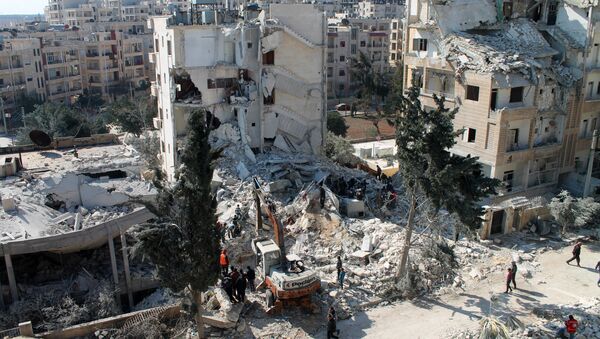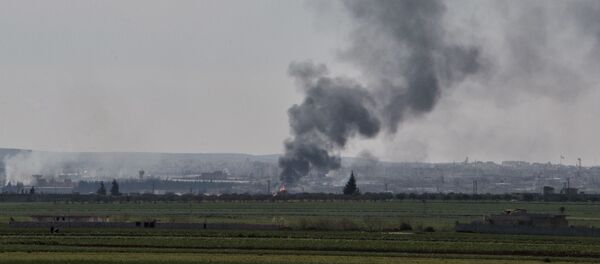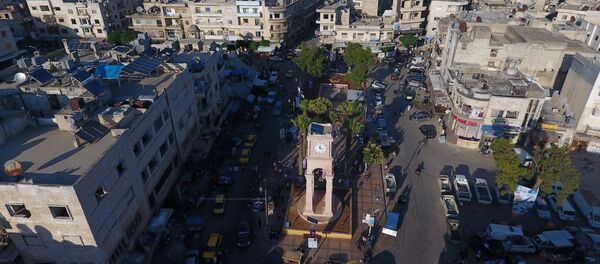"I think with this latest American move the situation in 80 percent of Syria will soon be resolved. The final knot, Idlib, will be difficult but with cooperation of the main parties, Turkey, Russia and Iran, I believe it’ll be resolved within a year", Ford said.
According to the ambassador, the next big issues for Syria are rebuilding the country, which has been devastated by war, and preventing the re-emergence of terrorism.
"That are immense challenges, and I greatly fear that the Western countries will not help. Worse than that: they will try to block Syria’s recovery", Ford added.
READ MORE: Russia, Turkey Agree to Continue Joint Work on Idlib Memorandum Implementation
Surrender of Syria's Manbij Paves Way for Return to Status Quo in Region
The surrender of the previously Kurdish controlled northern Syrian city of Manbij to government forces has demonstrated that the situation has started to return to the status quo that existed in the region before the civil war broke out in 2011, former UK Ambassador to Syria Peter Ford told Sputnik, adding that Turkish President Recep Tayyip Erdogan, who was planning to launch a military operation against the Kurds in the city, seemed to adjust his course toward normalization.
"It [the situation] is well on the way to resolution, where… we will see effectively a return to the status quo, the situation as it obtained in that part of Syria before 2011 when things were quiet, Turkey was happy, relations between Turkey and Syria were excellent… For several years the Syrian government has kept tight control over the Kurds. Turkey was very happy. We are heading for a return I think to that situation and it looks as though [Tayyip] Erdogan is adjusting to that probability", Ford said.
Ford also noted that the Kurdish militia should have realized much earlier the gravity of the situation, which they had been ignoring because of the US military presence in the region, and now their best option was to try and negotiate with Damascus.
"They [the Kurdish militia] have been dreaming the US would stay in northern and eastern Syria indefinitely… They should have been much more realistic from the beginning. Now the most they can do is try to salvage some small bit of negotiating manoeuvre with Damascus, but they are in extremely weak negotiating position", the former ambassador added.
READ MORE: US Special Envoy for Syria Says Idlib De-Escalation Zone Still Holding
Turkey has been opposing the presence of Kurdish militia in the north of Syria, claiming that the militants posed a threat to the country's security. In January, Turkey even launched a military operation in the city of Afrin against the US-backed YPG, which is regarded by Turkey as an affiliate of the Kurdistan Workers' Party (PKK), listed as a terrorist organization by Ankara. Damascus, in turn, called the operation aggression.
Earlier in December, Erdogan announced that Ankara was ready to launch another military operation against Kurdish militia, this time, in Manbij, if the United States did not make the militants leave the area. The Turkish leader later said that the operation had been postponed following his phone conversation with US President Donald Trump, who decided to withdraw US troops from Syria last week.
*Daesh (also known as ISIL/ISIS/IS/Islamic State) is a terrorist organisation banned in Russia




